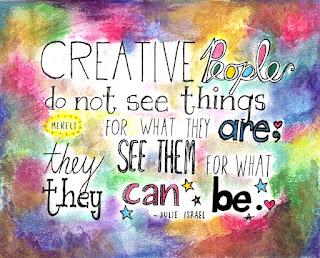For the ancient Greeks no word for creativity existed. They believed inspiration came from the muses. Greek professional poets and bards used the Greek word, mnēmosunē (memory,) to describe the faculty of memory that enabled them to compose for festive occasions. They would improvise when they had a memory lapse.
The Greeks called on the muses to begin their work. The nine muses involved: Clio, Euterpe, Thalia, Melpomeni, Terpsichore, Erato, Polymnia, Ourania, and Calliope.
Maciej Kazimierz Sarbiewski, 17th century poet, wrote that a poet "invents" or "creates anew" as a first concept of creativity. The concept appeared in art theory a century later. In the 19th century creativity involved art. The discussion of creativity in the sciences began in the 20th century.
As you look around your room, imagine the fun and creativity involved to develop all the conveniences you enjoy. Collaboration and courage abounded.
Activating a child's sense of wonder assists the creative process.
Playfulness works wonders when frustration enters a project.
Einstein and many others reveled in errors and how they led to success.
Observe in a variety of ways how a situation might resolve.
Consider a project that defies all expectations.
Learn the intrigues of process.
Let errors lead the way as laughter conquers fears.
Always return to moments in play.










No comments:
Post a Comment